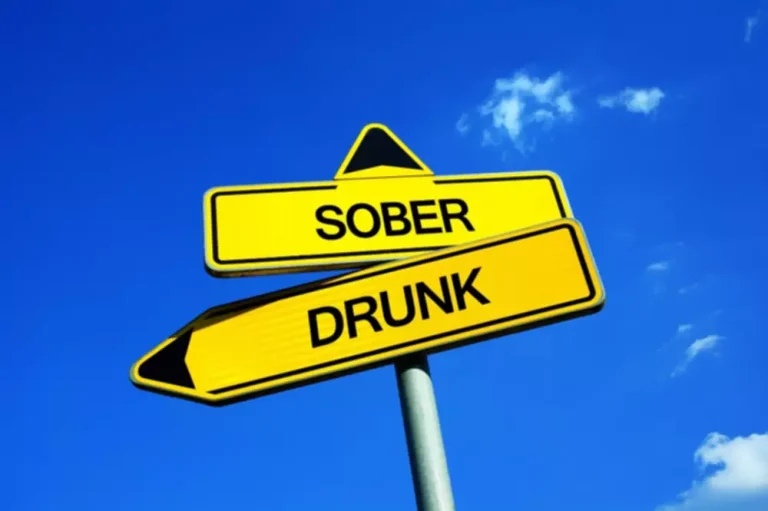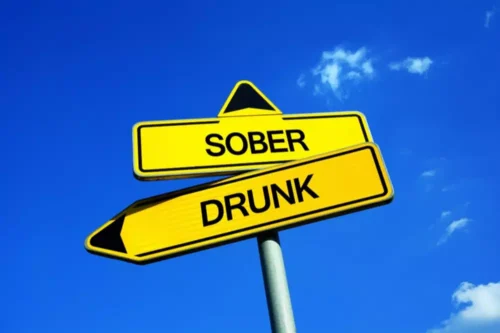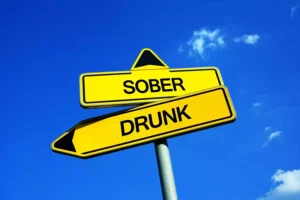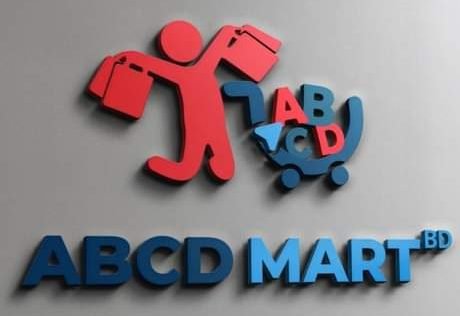- You have no items in your shopping cart
- Continue Shopping

The negative impact of ethanol on hypothalamic function appears to be more significant in the mamillary body regulating feeding reflexes following chronic alcohol consumption and simultaneous dietary malnourishment. Subsequent manifestations of memory deficit will be observed, where the disorder is referred to as Korsakoff’s amnesic syndrome. Individuals with alcoholic Korsakoff’s amnesic syndrome are unable to make lasting memories of their daily experiences (anterograde amnesia). The preservation of memories is limited only to those which are formed before ethanol-induced brain damage. Besides that, Korsakoff’s amnesic patients also experience loss of muscle coordination (ataxia), violent https://ecosoberhouse.com/ behaviour, and confabulation 44,63. The effects of acute/binge drinking and chronic alcohol consumptions on the brain.

Mild Symptoms

A slew of meta-analyses had shown that antidepressants are more efficacious than placebo in reducing depressive symptoms in patients with comorbid ethanol use disorder. The efficacy of antidepressants is comparable in depressive patients both with and without ethanol use disorder 192,193. Considering most researchers placed more focus on placebo-controlled randomized trials, the relative effectiveness of different antidepressants has yet to be determined 194. Despite this, it has been claimed that tricyclic antidepressants (TCA) are preferable to selective serotonin reuptake inhibitors (SSRIs) in the treatment of depression 192,195. The lower efficacy of SSRIs may be due to the higher placebo response found in SSRI studies 193.
- Besides that, the contradiction that arose may also be due to different species and/or strains of mice being employed in the study, as well as development of ethanol tolerance 117.
- Trade or proprietary names appearing in this publication are used only because they are considered essential in the context of the studies reported herein.
- While an unpleasant byproduct of stopping drinking, withdrawal symptoms are usually short-lived.
- Recognizing the difference between mild alcohol withdrawal symptoms and more severe symptoms is essential for proper treatment.
Qualify For Treatment
For example, benzodiazepines, such as lorazepam and diazepam, will be used for their anxiolytic and hypnotic effects 109. Besides that, nutrition replenishment can be attained by taking vitamin supplements such as thiamine and folic acid 112. In addition, eating a well-balanced diet rich in fruits and vegetables and maintenance of adequate hydration are important, as well, to rejuvenate the body 109. Explore “what is drug therapy?”, its various types, and how it’s transforming lives in the realm of healthcare. Explore the types of mental illnesses that lead to addiction, and effective integrated treatment approaches.

Prevalence of depressive disorders and AUD
From a neurocognitive standpoint, alcohol significantly impacts many of does alcohol make depression worse the neurotransmitters (brain chemicals) that oversee our emotional well-being. Depressive disorders result in symptoms that cause serious reductions in a person’s ability to engage in activities of daily living (ADLs). These ADLs can be as complex as engaging in work activities to tasks as simple as getting out of bed.
Importance of Medical Support
The first step to recovery is deciding to seek help, contact a treatment provider to explore different treatment options today. The ECT process has evolved significantly, and the current form is much gentler and more targeted than in the past. It operates similarly to TMS, except it uses brief electrical stimulation to parts of the brain while someone is under anesthesia. It is very effective, potentially even more effective than TMS for those with severe depression.
What causes depression and alcohol use disorder?
For instance, Nylander et al. carried out a study on the mesolimbic reward brain circuitry of two rat lines, namely alcohol-preferring (AA) rats and alcohol-avoiding (ANA) rats. Comparative study reported a lower basal level of (Met)enkephalinArg6Phe7 (MEAP) and dynorphin peptides in the nucleus accumbens of AA rats, as well as lower (Leu)enkephalinArg6 levels in their ventral tegmental area. However, ethanol treatment had resulted in increased MEAP levels in the nucleus accumbens without having profound effect on prodynorphin peptides 128. Following 17 g/kg/day ethanol treatment, C57BL/6J mice demonstrated a significant increase in enkephalin peptide levels in the striatum and mid brain. Hence, it can be proposed that organisms with inherent low basal levels of enkephalin are more prone to ethanol abuse, wherein the latter would result in amplified mesolimbic enkephalin production 130. Interestingly, the greater abundance of pro-dynorphin mRNA and dynorphin peptides in DBA/2J mice may have contributed to their nature of ethanol avoidance 131.

- Cognitive behavioral therapy for insomnia (CBTi), medication, or a referral to a behavioral sleep specialist can help.
- Often when people talk about feeling depressed after giving up alcohol, they are referring to this.
- Dating back to year 1996, Veatch and Gonzalez examined the brain electrical activity from different brain regions of male Sprague-Dawley rats using EEG following 10 to 20 days of chronic ethanol treatment with a period of four days of abstinence in between.
- Recent studies conducted by researchers have conceptualized a marked relationship between inflammation and oxidative stress, in addition to neurodegeneration 101.
- You might not have any issues after your short-term withdrawal goes away.
- DTs is a severe form of alcohol withdrawal that can cause confusion, hallucinations, and autonomic hyperactivity.
You might feel a little unwell physically, but as long as the room doesn’t spin when you stand up, try to get outside for a short walk — or a longer one, if you can manage it. This, combined with heightened mood states, can Substance abuse have some unpleasant effects. If you tend to rely on alcohol to ease anxiety in social situations, for example, you might never address the underlying causes of your discomfort.
- Your body must recover from the damage that drugs and alcohol do, as well as from sleep deprivation, sleep disturbance, overstimulation, and other effects of addiction.
- In her study, three groups of adult C3H mice of multiple withdrawal (MW), single withdrawal (SW), and control underwent chronic treatment with ethanol vapor.
- Treating alcohol withdrawal is a short-term fix that doesn’t help the core problem.
- Alcohol use in moderation brings pleasure and may protect the cardiovascular system.
- Drug rehab involves a structured process of assessment, detoxification, therapy, life skills development, and aftercare to support individuals in overcoming addiction and achieving lasting recovery.
- Therefore, professional help is essential in ensuring a safe and effective recovery.
Treatment for alcohol use disorder may involve a range of approaches, from brief interventions and individual or group counseling, to outpatient programs or residential inpatient stays. The main goal of these treatments is to stop alcohol use and improve the quality of life 5. The Centers for Disease Control and Prevention has found that 9 out of 10 adult binge drinkers don’t have a severe alcohol use disorder, but that doesn’t mean alcohol isn’t a problem for them. Drinking to cope with depression, no matter if you have an alcohol use disorder, is concerning.
Who Experiences Alcohol Withdrawal Symptoms?

For some individuals, the peak of depression symptoms may occur around three to six months after quitting alcohol, as the brain and body adjust to functioning without the presence of alcohol. After the acute withdrawal period, some individuals may experience Post-Acute Withdrawal Syndrome (PAWS). This condition can cause depressive symptoms, such as feelings of hopelessness, fatigue, difficulty concentrating, and sleep disturbances.
